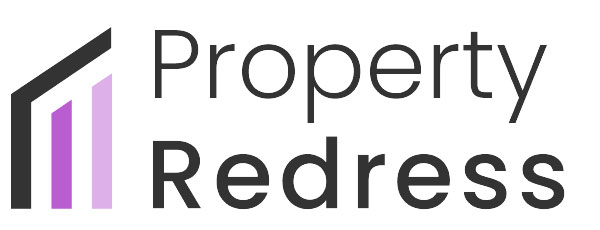Comparing buying property and renting out in England vs. France
When comparing purchasing and renting out a property in England versus France, several factors come into play, including legalities, tax implications, rental yields, and market conditions. But if you are willing to tackle the French rental rules, the average price of French properties is below the UK average and mortgage interest rates are between 3-4%. French mortgages are usually fixed and long-term i.e. between 10 and 25 years.
Obviously, you have to do your homework, but generally, once you have purchased a property and refurbished it, you can let on a one-year lease if furnished or an automatic three-year lease if unfurnished. Landlords cannot terminate leases early and must give 6 months’ notice if selling. Tenants can move on with one month’s notice.
As a French landlord, you will also face rules and regulations. A property has to be surveyed before it is rented out. Gas and electrical systems will be checked, and certain dangers, like asbestos, termites, and lead in paint, will be considered as part of the survey.
Here’s a detailed breakdown to help you understand the differences and benefits:
Legal and Administrative Differences
Buying a buy-to-let property in England:
1. Buying Process:
– Typically involves estate agents, solicitors, and surveyors.
– Conveyancing can take several weeks to months.
– Stamp Duty Land Tax (SDLT) applies based on property value.
2. Rental Regulations:
– Landlords must comply with various safety regulations (e.g., gas safety, electrical safety, EPC ratings).
– Tenant rights are strongly protected under the Housing Act 1988.
– The standard tenancy agreement is the Assured Shorthold Tenancy (AST).
3. Taxation:
– Rental income is subject to income tax.
– Capital gains tax (CGT) applies on the sale of a second home.
– Mortgage interest relief has been reduced to the basic rate of tax.
Buying a buy-to-let property in France:
1. Buying Process:
– Involves a notary (Notaire) who handles all legal aspects of the sale.
– The process is generally longer, often taking 2-3 months.
– Notary fees and transfer taxes (approx. 7-8% of the property price) are higher compared to England.
2. Rental Regulations:
– Landlords must adhere to strict housing standards.
– Rental agreements are highly regulated, with different types (e.g., furnished vs. unfurnished).
– Tenant rights are very strong, especially regarding lease termination and rent increases.
3. Taxation:
– Rental income is subject to French income tax.
There is also Taxe Fonciere, a property tax that must be paid by the property owner. On average, this is 800-900 Euros per annum, but some areas can be higher.
– Wealth tax may apply to properties valued over a certain threshold.
– Capital gains tax on property sales, with allowances for the duration of ownership.
Rental Yields and Market Conditions
England:
– Rental yields vary significantly by region. London generally offers lower yields due to higher property prices, while northern cities like Manchester or Liverpool can offer higher yields.
– Strong demand for rental properties, particularly in urban areas and university towns.
– Relatively stable market but subject to political and economic changes, such as Brexit impacts.
France:
– Rental yields can be attractive in certain regions, especially in tourist-heavy areas like Paris, the French Riviera, and Provence.
– The French market can be less volatile than the UK’s, with steady demand for holiday rentals and long-term leases.
– The property market has shown resilience, but economic factors (like tax changes) can affect attractiveness.
Benefits of Buying in France
1. Quality of Life: France is known for its high quality of life, which can attract tenants, especially in desirable areas.
2. Tourism: A strong tourism industry boosts the demand for short-term holiday rentals.
3. Diversification: Investing in a different country can diversify your investment portfolio, reducing country-specific risk.
4. Tax Incentives: Various tax benefits for investing in certain types of properties (e.g., historic renovations, eco-friendly buildings).
Investment Comparison
– Higher Margins: Whether France yields higher margins than the UK depends on the specific region and property type. High-demand tourist areas in France can offer substantial returns, but the administrative costs and taxes can be higher.
– Better Investment: This depends on individual circumstances, including risk tolerance, familiarity with the market, and investment goals. France offers unique benefits, but the UK’s rental market is also robust and well-regulated.
Is investing in French property a good investment?
Investing in property in France requires careful consideration. The French do not commute to work like we do in England, and it is always wiser to look outside of Paris and other large cities if you want to buy cheaper and maximise on your investment.
If you live in France and own a second home, there is a habitation tax. This does not apply if your home is your main residence, but it is payable for second homes in France. It is paid by the person who lives in the property—the owner or tenant.
If you don’t live in France, you will need to hire a property management company to take care of the regular maintenance and administration. This is likely to cost between 20 and 50% of your rental income, which will significantly impact your yields.
France does have strong rental demand, especially in tourist areas, and the potential for diversification. However, higher purchase costs, taxes, and stringent rental regulations must be considered and can be higher in more sought after cities.
Property prices in France are on the increase, and purchasing could be beneficial, but do consider there are taxes, but things are different across the Channel. It is reasonable to assume that capital growth is a good possibility and regulations are lighter.
Consider also Capital Gains Tax. If you have held your property in France for 22 years or more, you will not pay capital gains tax, but it is around 19% if you decide to sell early. The longer you own the property, the less CGT you have to pay.
To make an informed decision, consider consulting with property professionals and financial advisors familiar with both markets. Although the UK offers a more familiar and streamlined process for British investors, there is a strong tenant demand although regulations are tighter and properties more expensive. There is some more information here for British buyers.
Check back soon as our next blog will cover France’s equivalent to Commonhold – Copropriété.







